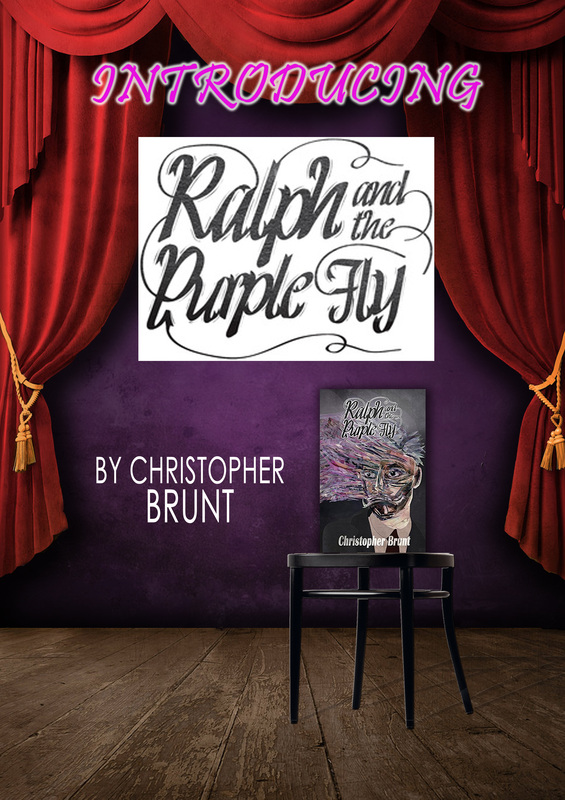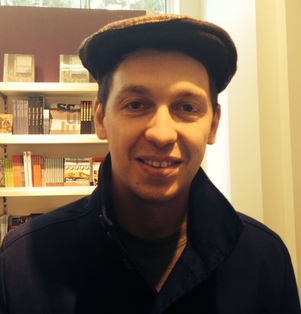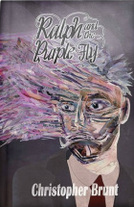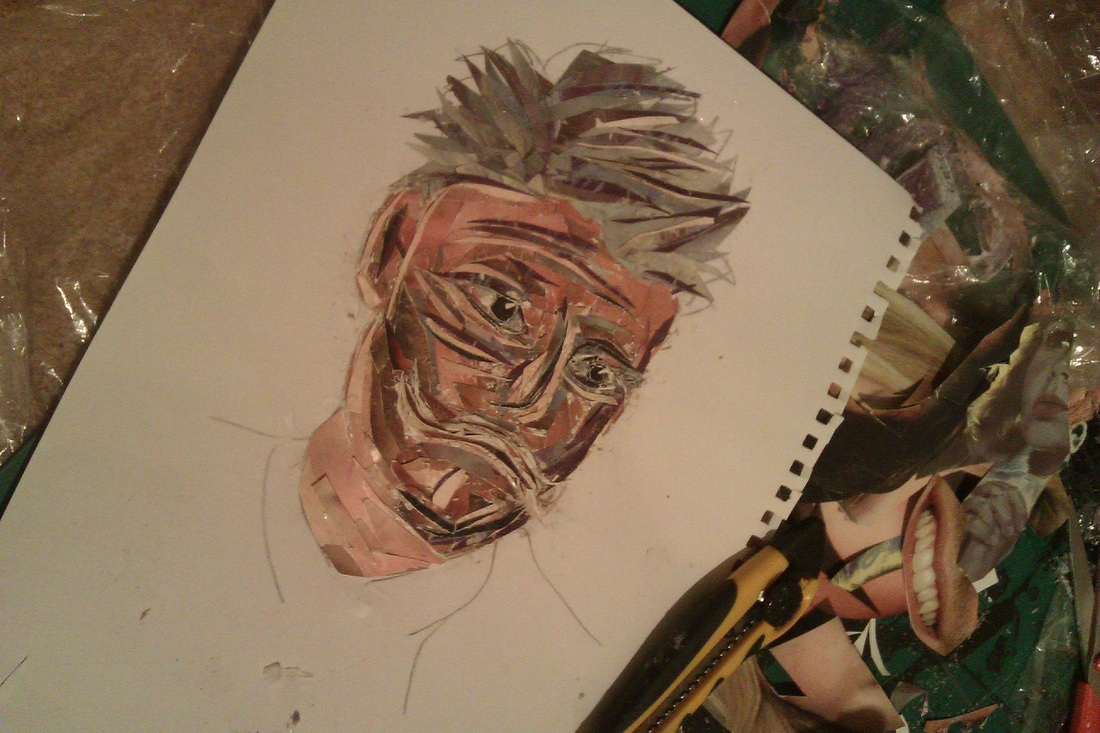 It's official (and slightly mad) this moths Words From a Bench project is live in both Rowntree Park and Reykjavik, Iceland. The project is a avenue for new and emerging writers to get their short stories and poetry into the heart of the cities. I have now been published by the great folks who run the Rowntree's project (Cath Mortimer, blogger and Karen Green, editor) four times and am ecstatic that my writing will now be extending to Iceland. Lets hope for a spike in international book sales!?! :p You can find out more about the project at my project page and from the pages linked above. Please go take a look at the writing. I am joined by some amazing authors, including:
0 Comments
Ben: Ha, you certainly have. It is very interesting that, for writers, sometimes the hardest part is working out where to place yourself in the market. I think we’ll come back to that, but first you mention on your website (http://www.christopherbruntauthor.com) that the book started as a short story, where did the idea spring from and who are your influences?
Chris: My influences? Shakespeare, Bulgakov, Dostoevsky, Bernard Cornwell, Vonnegut, Gogol, Chekov, and lots more…the last book I read was totally different from these, it was Dark Places by Gillian Flynn, and I absolutely loved it. Ben: Yes, I’ve heard a lot of good things about Gillian Flynn, though I haven’t read anything of hers as yet. One for the reading pile I think. There are a lot of classic writers in your list of influences. One of the things I love about this book is the classic narrative style, it’s very traditional. Is this a style you use a lot and why did you choose it for this novel? Chris: For me, that sort of traditionalist voice provides so much artistic license than something trying to adhere to a particularly overt or contemporary style. The reason being, that it allows you to be completely neutral and to unravel a story in a very detailed and linear way, as you might expect in bygone novels. But it also allows for elements of surrealism and satire, which you can exacerbate against the backdrop of a very serious and formal tone. I think with Ralph and the Purple Fly I’ve opted for this classical style, set in a modern and contemporary world, while woven into these very surreal and satirical moments, because all those things together help to reinforce some of the dystopian conflict that I wanted to create with the mad scientist character and his bizarre adventurers. As a result, there are several different interpretations created out of these elements, which, aside from making the reader laugh, cry and generally be entertained, also forces them to think. Like you said, everything is held together by a recognisable and very traditional voice, which, without giving too much away, belongs to a narrator whose sanity is questionable and could be seen as totally unreliable but who is still someone you want to believe in. It goes without saying, that this was my intention and what I hoped to create, but now it’s down to you and the reader to see if it works. But yeah, I really enjoyed using this sort of traditional or classical narrative style because it did help to open up so many more creative possibilities. Ben: That’s a perfect description and I do love the style. It certainly does everything you’ve mentioned there. The book allows a lot to be perceived by the reader, which I think is great. It would be a great book for anyone in a book club; there’s lots of great room for discussion. Chris, like myself, you self-published your book with CreateSpace and KDP. How did you find that process and how has the response been so far?
Ultimately, it’s always going to be an uphill climb when you self-publish because you’re essentially doing all the work that the publisher and their marketing experts would usually do, not to mention avoiding the stigma of ‘vanity press’. But if you can put yourself out there and convince people that you’re not just another person with a laptop and internet connection who’s published their book, then you’ll do well. It’s a huge learning curve and if you’re proud of the finished product then you can be proud of the fact that your work is accessible to everyone and will always be out there for people to read. It doesn't matter if you've published in a traditional way or self-published. What I would say to anyone considering this route, is that if your book is good enough to be read then it doesn't matter how it finds its way to the readers. The trick for self-published writers like us is to always try to put yourself out there and you have to find a happy medium between writing and marketing. Ben: You mentioned earlier that the idea of genre and trying to place yourself can be tricky. How did you find that process and do you have any hints for the writers out there? Chris: It depends really, if your aim is to make money and you don’t know where to begin then I would suggest picking and sticking to a genre first and foremost. I would advise that you read everything you can in your chosen area and try to find something unique that you can write about. For me it was very different, I started with something unique and then wrote the story without worrying about genre or the commercial aspects, my only concern was being true to the original idea and the novel as a whole and I didn't want to compromise to confine the piece to a particular convention. I felt the story was strong enough without worrying about that sort of thing. Ben: So tell us a bit more about you. What drew you to writing? Chris: Once upon a time…it all began when my dad introduced me to Bernard Cornwell when I was about fourteen; it was his King Arthur trilogy; and, when he bought me my first Dostoevsky novel. Since then all I’ve ever wanted to do is write. I think it probably has something to do with a need to be creative and to recreate my own version of things, stories, people and ideas. I love the idea of writing something and then having someone read and reimagine it to the point where it sticks with them forever. As I say, it’s very much a romantic notion but I haven’t been able to shrug it off so far. Ben: That’s a great answer and one worth writing for, definitely. I've actually just finished reading the King Arthur trilogy myself. It’s a great set of books. So, if the folks reading want to find more stuff by you, is there more out there yet? Chris: Besides Ralph and the Purple Fly I have some short stories published online. I wrote these stories for a project called Writers in the Park and they vary drastically in content and style. I really would urge people to take a quick look at these, along with the work of other contributing writing, because it’s a great project with lots of interesting writers involved. The most recent addition even features stories written by Icelandic writers! Links to these can be found on my website. Ben: Well I’m chuffed you’ve mentioned that, especially as I’m one of the writers involved :] The readers of my site will be very used to hearing about the Writers in the Park project. Anything else you can tell us about? Chris: I wrote a couple of reviews and articles for an online magazine, run out of York St John University, called Neutral Magazine, which again you can access via my website. I really enjoy reviewing work by other writers so I recently started a blog dedicated to reviews, which you can read and subscribe to via my website. Basically, everything I have done so far is accessible via my website. I’m also on Twitter too so feel free to follow me at @CJBWriter. Ben: What’s the next project on the cards? Chris: I’ve recently gone back to a project I started about four years ago. I’ve written a lot of different things since then but at the time when I began working on this project and initially came up with the idea, I was too inexperienced and lacking in the tools to pull it off. It’s a two part series called The Lost Family. In its simplest form the series is about a family who become totally disconnected morally, physically and emotionally from one another. This is due not only to their personalities but also to the actions of the father in the family, Elliot Rosen. All the characters in the story find themselves gravitating towards the guy who, to cut a long story short, has suspended himself in a type of unconscious comatose state. The drama results from Elliot’s decision to do this, his actions are the catalyst and then the narrative goes on to follow each of the other family members who have to pick up the pieces. As you’ve probably guessed, similar to Ralph and the Purple Fly, there are certain some surrealist themes involved, though it’s very much a character driven story. It’s set in the 1930s so inevitably it’s influenced by some of the historical events of the time. Ben: Chris, that sounds really interesting. I especially liked the character driven elements of Ralph and Purple Fly, so I think this will be really strong. I’m really looking forward to reading it. Congrats again Chris and best of luck with promotion and with the upcoming Lost Family. You can grab your copy of Ralph and the Purple Fly here and if you want to know more about Chris have a look at some of the links below. Find Out More
The most recent news is that there was a new submission task set in late December, which asked for writing with the theme of 'the dead of winter'. This week all those pieces have gone live in the park and I am really happy to say that I have been included again. My piece, Footsteps In The Snow, is available to read online as well as in the park. If you can get to the park please go and hunt for it (its half the fun) but if not you can find all the writing from many talented artists at the Rowntrees Park Wordpress site.
Again huge thanks to Cath and Karen and I hope you'll go check it out. |
AuthorBen Warden - Editor of the #SFFiction project and author of 'Life Without', which made the top ten literary fiction e-books on amazon. Categories
All
Blog Archive
January 2020
|





 RSS Feed
RSS Feed
